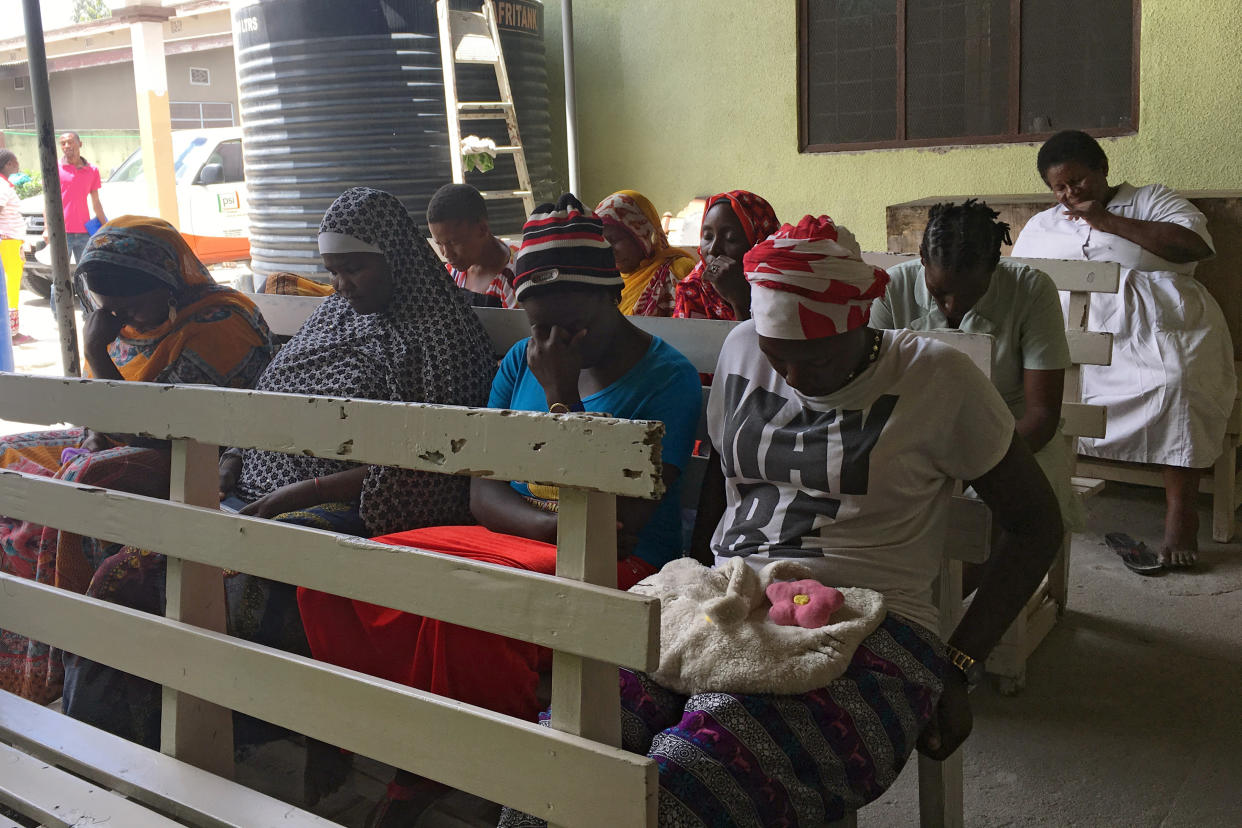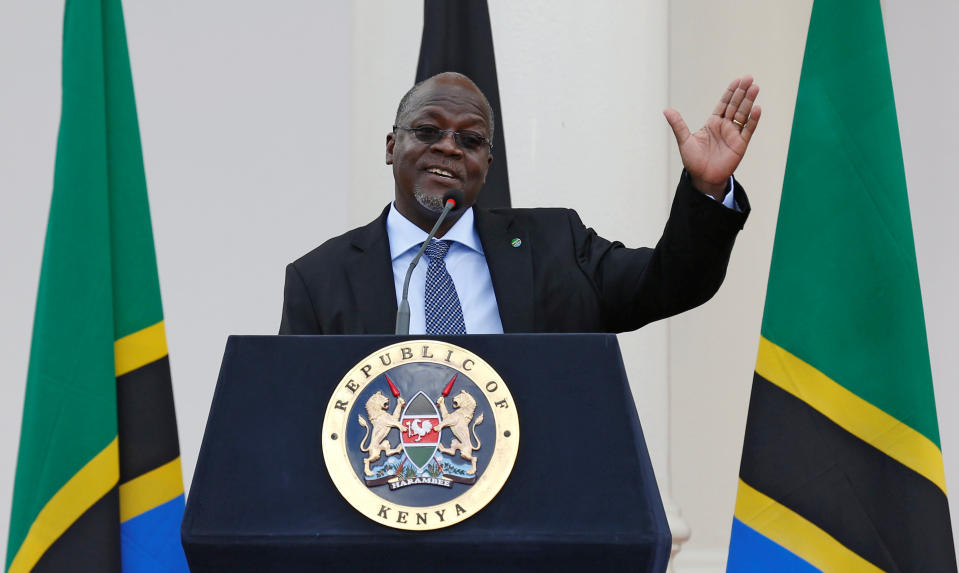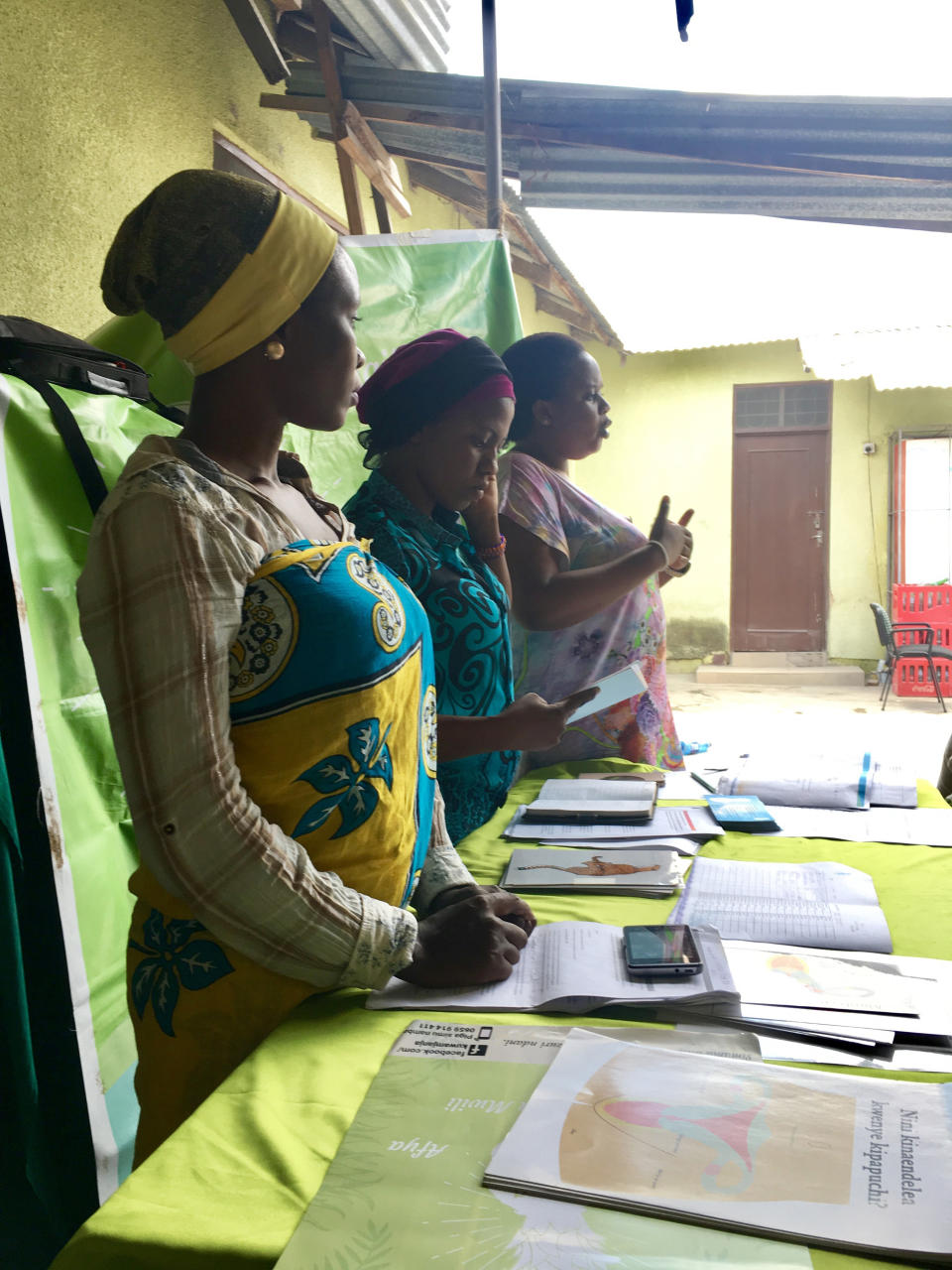In Tanzania, mothers learn how to teach the facts of life

DAR ES SALAAM, Tanzania — On a warm Saturday in October, a dozen women in the neighborhood of Mbagala Charambe in Dar es Salaam, Tanzania, sat together in the open-air waiting area at Samaria Health Centre. On most weekends, women gather here to learn how to talk with their preteen and teenage daughters about puberty, their changing bodies, contraception and sex.
The program in Tanzania is known as the Kuwa Mjanja (Be Smart) movement. It was initiated with an investment from the philanthropist Pam Scott and expanded through the Adolescents 360 Project (A360), which is led by Population Sciences International (PSI) and co-funded by the Bill & Melinda Gates Foundation and the Children’s Investment Fund Foundation. The Adolescents 360 project seeks to revolutionize the way adolescent girls access contraceptives in Tanzania, Nigeria and Ethiopia.
Fathers are also invited to attend the weekend sessions, although this morning, only mothers are present. Facilitators say that on most Saturdays, it’s usually just mothers. “While we’d love for fathers to be more involved, it does offer a more open conversation when we just have women present,” said Cathreen Bukuku, one of the program’s organizers.
The session begins, and Faudhia Hamisi, a facilitator, stands in front of the group. She discusses the changes their teenage daughters are going through, physically and emotionally. Then she asks the women, in Swahili, to close their eyes. The women look around and giggle. No one closes her eyes. “It’s OK,” Hamisi says again in Swahili. “Just trust me. It’ll just be for a moment.”
The women’s shoulders relax before they close their eyes, almost in unison.
“OK, good,” Hamisi says, smiling, as she, too, closes her eyes. “I want you all to think back to when you were 14 and 15. Think back on your hopes and your dreams. What did you want for yourself? What did you hope to be?”
The women sit still. Some furrow their brows.
“What do you wish your mother had told you? About your body? About men?”
She remains silent for a moment, allowing the memories to settle in. Two women in the group quickly wipe tears from their eyes, still closed.
Hamisi asks the women to think back on what they would tell their teenage selves. What would you tell her now? What did she need to know? “Now think of your own daughters,” she says. “What do you need to tell them?”
Tanzania has one of the highest rates of teen pregnancy in the world, with about 21 percent of girls giving birth between the ages of 15 and 19, according to the Tanzania National Bureau of Statistics. Activists from nonprofit groups like Equality Now say teen pregnancies in Tanzania are often the result of rape, incest and sexual coercion.

In June, Tanzania’s President John Magufuli was widely criticized by human rights groups after announcing, “As long as I am president … no pregnant student will be allowed to return to school. We cannot allow this immoral behavior to permeate our primary and secondary schools. After getting pregnant, you are done.”
The criticism was compounded just last month, when the president pardoned thousands of prisoners, among whom were at least two convicted child rapists. News of the move came days after regional commissioner John Mongella was quoted as announcing that female students who became pregnant would be taken into custody. He said the girls could be forced into court to disclose the identities of their sexual partner. The plan would also discourage them from having sex, Mongella added.
Among the released rapists were a popular singer, Nguza Viking, and his son, Johnson Nguza. Both were pardoned after serving 13 years of a life sentence, after being found guilty of raping 10 children between the ages of 6 and 8 at a primary school in Dar es Salaam.
Fazia Mohamed, director of the Africa office for Equality Now, an NGO that works on behalf of girls and women, told the Guardian last month, “It is unacceptable that convicted child molesters walk free by order of a president who simultaneously denies victims of assault access to education if they become pregnant.”

Meanwhile, during the Kuwa Mjanja sessions, women openly discuss the cycle of poverty they witness in their communities. Girls get pregnant young, drop out of school, get married, have more children; then their children also have children young.
Facilitator Hamisi, now 38, became pregnant at 17 and was soon married. “I would have loved to go to college,” she says after the session, adding that she knew nothing about contraception as a teen. But now, it’s all about helping the next generation of young women — by destigmatizing the conversation around sex, menstruation and birth control, and empowering young women with proper sexual education. “It’s a pathway out of poverty for these girls.”
Trust and communication between the parent, provider and girl is the focus of every session, says Bukuku. The program leaders also seek to ensure that the narrative at the meetings are girl- and women-centered, building the empathy of the parents by encouraging them to recall their own teenage years.
While the mothers meet for a few hours, a simultaneous pop-up event is also going on just down the street. Their daughters are able to meet and hang out, while meeting with providers to discuss their changing bodies and contraception options. They are also able to ask questions they might be too embarrassed to bring up with their friends or parents.

“It’s nice, because all my friends are here,” says 17-year-old Neema, who adds that she plans to be a doctor when she grows up.
Back at the clinic, the women have opened their eyes, and Hamisi invites discussion. She asks the women to share their thoughts. What did they want when they were young?
A woman in the back stands up.
“I wanted to be a teacher,” she says. “I never wanted to be around boys or men. They scared me.”
Another woman raises her hand: “I wanted to go to school and play soccer on the weekends. I loved playing soccer and just running around. I was good.”
“I wish I’d had the information that I have now,” says another. “I wish I knew what I know now. I want to make sure my daughter has that knowledge now.”
Mikaela Conley reported this story on a fellowship from the International Reporting Project.
Read more from Yahoo News:


